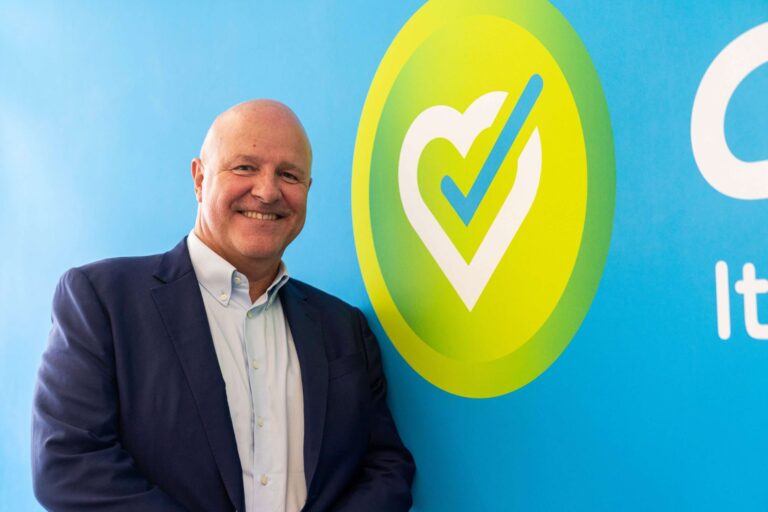
Similar Posts

Transforming Healthcare: How dacadoo Enhances Outcomes and Reduces Costs
A recent study by the University of Groningen highlights significant financial benefits for healthcare insurers, suggesting a potential 5.3% reduction in expenditures over two years through enhanced user engagement on digital platforms. Utilizing data from a major Dutch health insurer, the research emphasizes the transformative impact of digital health platforms like dacadoo, which employs AI and behavioral science to boost engagement. CEO Peter Ohnemus discussed the importance of behavioral economics and a global scoring system for healthier choices. The study aligns with findings from the Society of Actuaries, noting increased consumer openness to coverage options through consistent digital engagement.

Keep Secures C$108 Million to Disrupt Legacy Banks in Canada’s SMB Sector
Canadian FinTech company Keep has raised C$108 million, marking its exit from stealth mode and aiming to transform financial services for small businesses in Canada. The funding consists of C$33 million in equity led by Tribe Capital, a C$71 million credit facility from Coventure, and C$4 million in venture debt from Silicon Valley Bank. Keep plans to introduce innovative solutions like the first FinTech business credit card, multi-currency accounts, and automated expense management. With over 3,000 small businesses onboarded and a goal to reach 100,000 by 2027, Keep aims to save entrepreneurs C$250 million in fees annually.

2025 Key Fee Adjustments for Fund Marketers: Essential Insights for Europe
As the New Year approaches, fund managers must prepare for significant regulatory updates and fee changes influencing cross-border fund registrations in 2025. Key updates include Croatia’s periodic fee for marketing EEA UCITS set at EUR 1,500, and Czechia eliminating fees for foreign UCITS and EEA AIFs. Finland will charge no registration fees for UCITS, while annual fees for AIFs will increase. Guernsey adjusts its application fee to GBP 1,470, and Jersey introduces a GBP 686 fee for prospectus circulation. Malta and Sweden also adjust fees for AIF marketing. Staying informed is crucial for effective financial planning and operational efficiency.

Intergiro Partners with SEON to Tackle Digital Fraud Head-On
Intergiro, a Swedish provider of embedded finance solutions, has partnered with SEON, an expert in digital fraud prevention, to enhance fraud protection in financial services. This collaboration aims to create a safer environment for businesses and consumers by leveraging advanced anti-fraud technology, real-time monitoring, and integrated financial services. Both companies recognize the evolving nature of fraud and are committed to improving their technologies through AI and automation. The partnership is expected to reduce fraudulent sign-ups, enhance payment security, and tackle sophisticated fraud types, ultimately fostering a more secure financial future for digital transactions.

Recharge Boosts M&A Strategy with €45M Funding from ABN AMRO
Recharge, a leading online prepaid payments company in Europe, has secured a €45 million financing facility from ABN AMRO to bolster its mergers and acquisitions strategy. This funding, combined with existing reserves, will support the company in executing two to three M&A deals by 2025. Recharge aims to enhance its market presence and target €1 billion in sales by 2025, following a 30% year-on-year revenue increase in 2024. CEO Günther Vogelpoel expressed enthusiasm for the partnership with ABN AMRO, highlighting its role in facilitating Recharge’s growth and innovation in the prepaid payments sector.

Essential Strategies for AML Officers: Effective Tactics to Combat Healthcare Fraud
Healthcare fraud poses a significant threat to the financial stability of medical institutions and erodes patient trust, with a reported 40% rise in cases over five years. Common fraudulent practices include billing for nonexistent services and upcoding. Effective detection strategies involve robust risk assessments, data analysis to identify anomalies, and establishing red flags. Training employees on fraud indicators and leveraging technology, such as data analytics and machine learning, can enhance prevention efforts. Strong internal controls and a culture prioritizing fraud prevention are crucial. By investing in these areas, healthcare organizations can protect resources, ensure compliance, and improve patient care quality.
